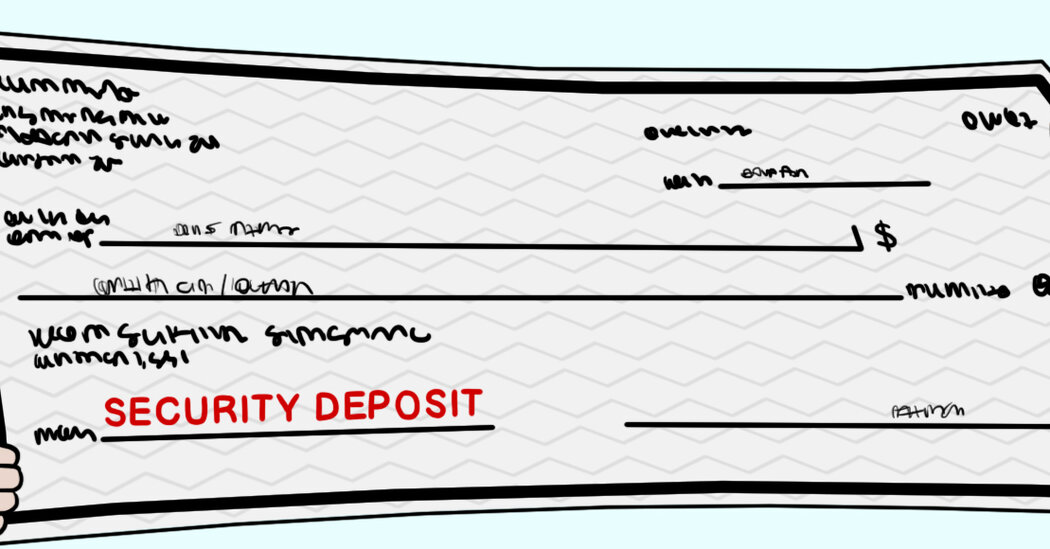Q: I’m shifting out of New York Metropolis, and I’m involved that my landlord won’t return my one-month’s lease safety deposit, even when I depart the residence in good, clear situation. (The owner has a fame for not returning deposits.) I can not afford to lose that form of cash, and I’m frightened that since I’ll not be in New York, I gained’t be able to make a authorized problem to get the cash again if it’s withheld. To keep away from the chance, I wish to use the deposit as my final month’s lease, regardless that that’s not permitted within the lease. Is that this a foul concept?
A: Withholding your final month’s lease shouldn’t be with out dangers. Finest case state of affairs, your landlord retains your safety deposit to cowl the unpaid lease, which the legislation permits, and you might be achieved with the residence.
Nevertheless, the owner might resolve to sue you for unpaid lease to make a degree. You might need to journey again to New York to defend your self, or face a default judgment in opposition to you, based on Carol Anne Herlihy, a Manhattan lawyer who represents tenants and landlords. For those who lose the case, which is probably going, you can be on the hook to your landlord’s authorized charges, relying on the phrases of your lease.
“You might be leaving city hoping that this may simply go away, that they are going to simply pocket the deposit, name it even,” Ms. Herlihy mentioned. “But when they don’t, you’re coming again to New York as a defendant.”
Paying your final month’s lease could really feel dangerous, too, however you do have some rights. In 2019, New York State enacted stronger tenant protections for safety deposits. The legislation provides tenants instruments to push again in opposition to landlords who withhold the deposits, and lays out floor guidelines that landlords should observe.
Use these instruments to guard your self earlier than you progress out. Give the owner discover that you’re leaving, and demand, in writing, a walk-through of the residence no less than two weeks earlier than you progress out. Your landlord should offer you an itemized checklist of any damages that could possibly be deducted out of your deposit, and provide the alternative to right the issues. “Put the owner on the spot the place it’s tougher for the owner to fake the residence was a wreck,” Ms. Herlihy mentioned.
After you progress out, your landlord has 14 days to return your deposit or give an in depth clarification for withholding it. In the event that they fail, they could possibly be ordered to pay you damages equal to the quantity of the deposit, along with the deposit itself, Ms. Herlihy mentioned. Even when you’ve left town, you can file a complaint with the New York Legal professional Basic’s workplace, which might aid you recoup the cash. Nevertheless, you’ll nonetheless must sue the owner in small claims court docket to gather any damages.
For weekly e-mail updates on residential actual property information, enroll right here.

